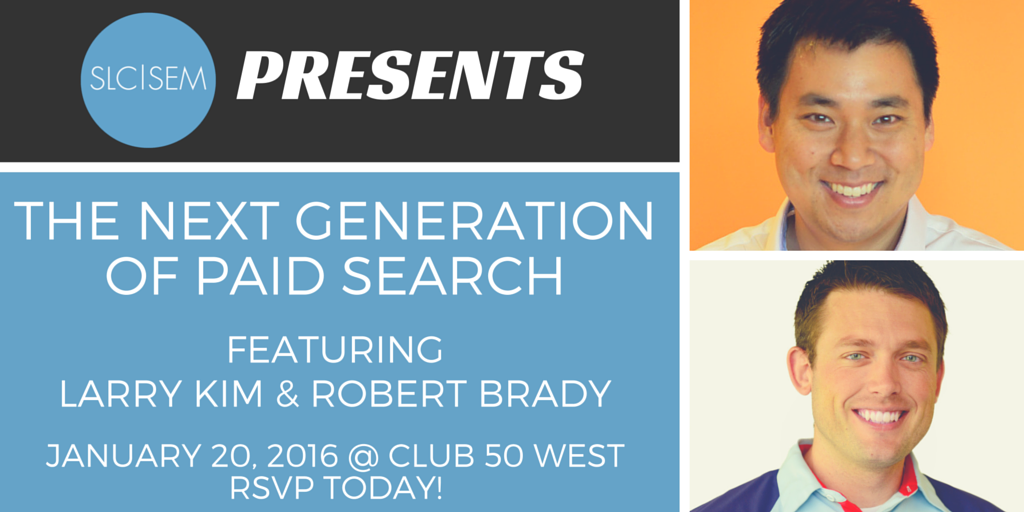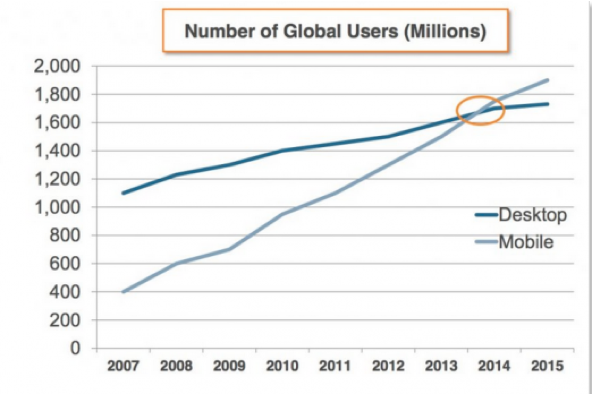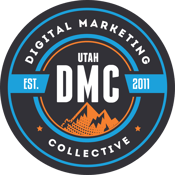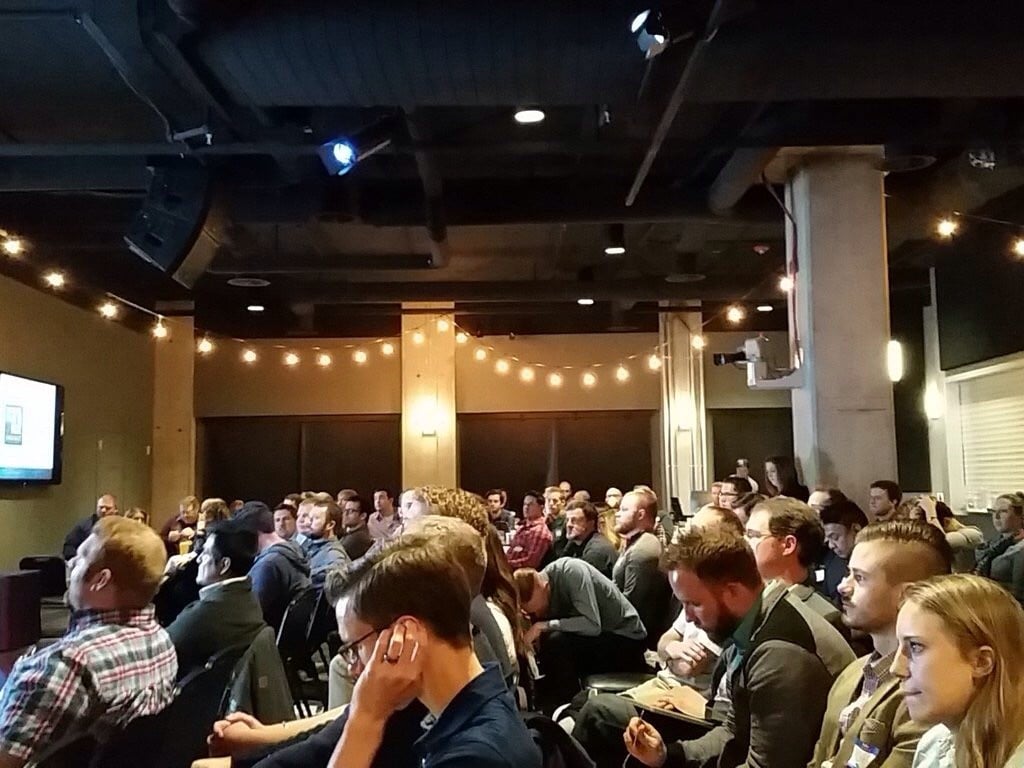 This month, we had the awesome opportunity learn about the future of paid search from Larry Kim of Wordstream and Robert Brady of Clix Marketing.
This month, we had the awesome opportunity learn about the future of paid search from Larry Kim of Wordstream and Robert Brady of Clix Marketing.
Robert Brady
Are Keywords Dying?
With the rise of social paid ads through platforms like Facebook, LinkedIn, and Twitter, many have feared for the stability and longevity of their AdWords and Bing campaigns. Robert points out the reason for the fear when he reminds us that it is not keywords that buy products, it is the person using the keyword. Meaning, when all is said and done, if the person who clicked on your well designed ad with relevant keywords and copy ends up not liking your company, then they will not buy. This makes sense, but all too often we get caught up in the thick of quality scores, bid strategies, and A/B Testing and we forget that there is a person on the other side of the screen.
“Stop targeting keywords and start targeting people.”
Mutual Exclusivity
However, this does not mean that PPC is dying. Robert makes the point that Google is the father of what we know of PPC and they’re doing just fine ($66 Billion in revenue last year with 97% of this coming from ad spend). Google knows that targeting people is where the money lies. This is why they came out with remarketing 5 years ago and why they are focusing on video and rich media right now.
“The size of the digital pie is growing.”
Robert’s point is that paid search is not dying--not any time soon. However, our marketing efforts
will die if we are not incorporating platforms such as Facebook, Twitter, LinkedIn and others.
Larry Kim
“We’re Doomed!”
Larry Kim owns one of the most successful paid search organizations in the United States. You can imagine the surprise the audience shared when he opened with a less than cheery view of the future.
Paid search has undoubtedly transformed the market. Remember the websites with eye gougingly awful ads?

Through paid search ads, Google made connecting advertisers with their desired audience much easier and with less lime green backgrounds. But prices have risen much since then, and continue to rise as PPC becomes more and more competitive.
Mobile Search
In 2014 mobile searches surpassed desktop searches. This is big news for marketers since when viewing a Google search result page, only the top 2 or 3 ads get displayed on the first page with mobile instead of 9 or 10 on a desktop.

And, by the way, Larry adds that despite the current focus on conversion optimisation (CRO) the typical conversion rate of 2.35% has not moved in 15 years, according to his own data.
All in all, PPC’s strength is also it’s weakness. When people are ready to make a purchase, your ad pops up and they convert. But, as we know, the majority of the people are not yet ready to make a purchase. Most people did not know, or have not made up their minds about your company. Enter social ads.
Social Ads
Larry refers to paid search as “direct conversion” advertising. “Let’s focus on assisted conversions through social ads”. He mentions how well social ads perform in amplifying your reach, building your brand and acting as an accelerant for your other media advertizing. So let’s jump into the nitty gritty of advertising through social channels.
- Relevancy Score: Larry has found that a 1% increase in engagement equals a 5% lower cost.
- The worst thing you can do is to divide the cost evenly for each ad. Simply do not use the losers.
- Promote only the best “Unicorns”. Fun fact: Larry probably said the word “unicorn” 53 times during his presentation. And considering that his twitter background happens to be centered around finding unicorns, I would count this as his main focus right now.
- The Unicorn Detector:
- A unicorn is a post or piece of content that does significantly better than the other pieces of content.
- Find the best content by first posting a ton of content, then check your data for the best performers.
- Again, only promote the unicorns
- Pay for free clicks - buy one, get 3 free:
- The posts’ grandchildren (the 3rd generation of sharers) will be free clicks for your business.
- Targeting
- With Facebook’s (and others’) involvement with credit card companies, we can now target buying behaviors of people. Who would you rather retarget: those who liked a product, or those who bought a product? Well you have the option to.
- Add in the highly engaging unicorn posts to this targeting equals what Larry calls “super remarketing."
With these tips in mind Larry brings us something to look forward to.
A New Hope
“In the future indirect conversion via paid social media will be more important.” The way prepare is to create more memorable content and amplify it to the best custom/targeted audience. By doing this you will create new demand rather than just trying to grasp the small group ready to convert.
“The most important skill is the ability to create content that people will remember.”
Final Thoughts
Although creating new-more-better content may be unsurprising to many, Larry painted a vivid picture of how we can better utilize social to create even more successful campaigns than what we are doing on paid search. Although the path of paid search may be grim, both Larry and Robert agree that we should not take anything away from what we are doing on that medium, but we should also be making a concerted effort to expand and refine our paid social programs. A huge thanks to Larry and Robert for joining us!

About the Author Bryan Phelps is SLC|SEM’s Membership Director and is the CEO of
Big Leap. Big Leap is one of Utah’s fastest-growing internet marketing companies, providing a full range of services to mid-to-large companies.

